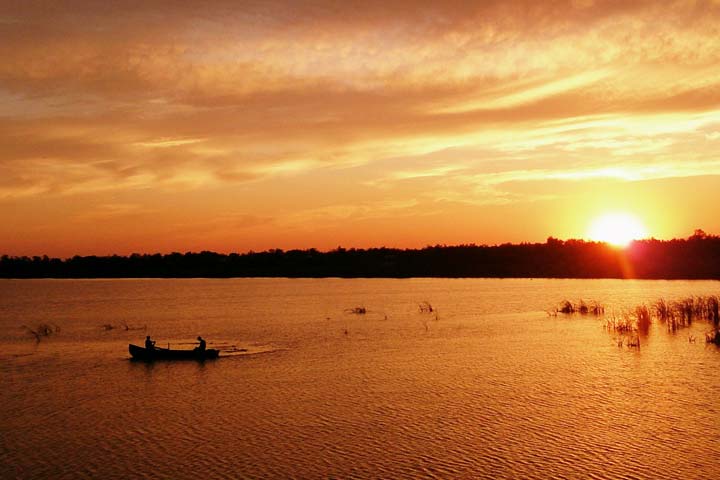Advancing Climate Adaptation Initiatives for Indigenous Tribes within the Great Lakes Region
Advancing Climate Adaptation Initiatives for Indigenous Tribes within the Great Lakes Region
Advancing Climate Adaptation Initiatives for Indigenous Tribes within the Great Lakes Region
Program: Catalyst Grants
Program details » | All Catalyst Grants projects »

“One of the core tenets of working collaboratively with Tribal Nations is to conduct your work in a way that will “cause no harm.”[...] You have to understand that information is not a right, but a gift to be given.”
Project Team
Frank Marsik - U-M College of Engineering, Climate and Space Sciences Engineering (PI)
Maria Carmen Lemos - U-M School for Environment and Sustainability (Co-I)
Jenna Jorns - U-M SEAS (Co-I)
Omar Gates - U-M SEAS (Co-I)
External Partner:
Robin Clark - Inter-Tribal Council of Michigan
Project Summary
Climate refers to the slowly varying aspects of the natural environment: the integrated atmosphere-hydrosphere-land surface system. For Indigenous peoples, this natural environment has been a common thread woven through all aspects of Tribal life. The sovereignty and jurisdiction of Tribal governments, Tribal economic capacity, and cultural/spiritual considerations must be applied in any strategy that seeks to protect the Indigenous ways of life in the face of a changing climate.
An earlier climate assessment conducted for the Inter-Tribal Council of Michigan (ITCM) and its member tribes had identified vulnerabilities and potential adaptation strategies that could be implemented across reservation boundaries and treaty ceded territories. These strategies are needed to protect the natural features, traditional ways, public health, and infrastructure of these communities. After taking initial steps to apply these strategies, the ITCM and its member-Tribes needed to convene to share their progress and the challenges faced in their respective communities.
To meet that need, the ITCM and Great Lakes Integrated Sciences and Assessments (GLISA) collaboratively organized and conducted a three-day Tribal Climate Workshop at Bay Mills Community College. Outcomes of the project include:
- Addressing ITCM and Tribes' needs to share information around recent adaptation efforts
- Enhancing collaborative partnerships among ITCM member-Tribes
- Fostering communication with Tribal representatives outside the ITCM
- Strengthening Tribal capacity in adaptive resource management for future climate change
The workshop also led to an additional project focused on collaboratively assessing stormwater runoff on tribal lands to inform best management practices.
News & Resources
- PI Perspectives Interview: Frank Marsik Graham Sustainability Institute October 23, 2020
For more information, read the final project report (PDF).
This project received a $10,000 Catalyst Grant in 2017.